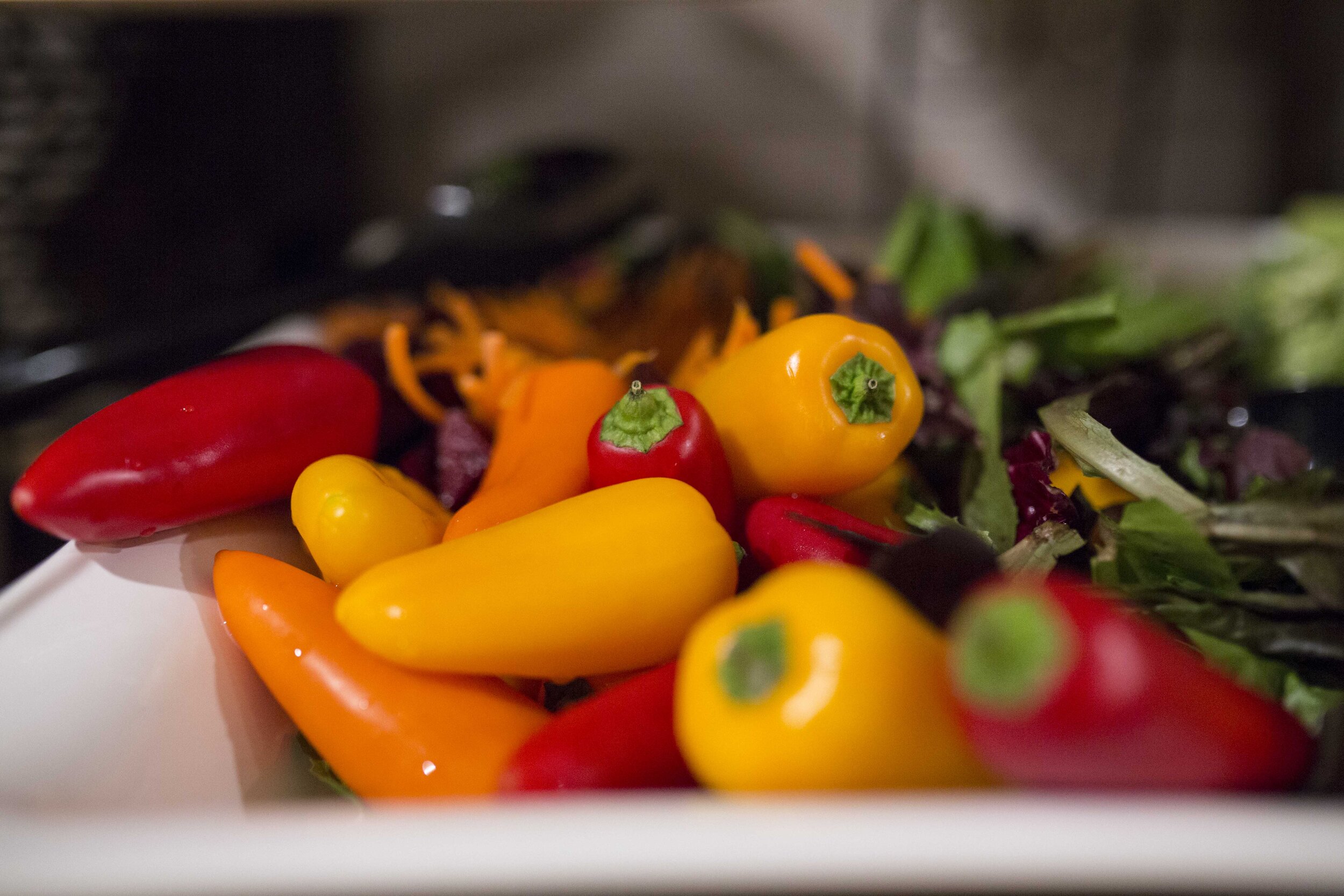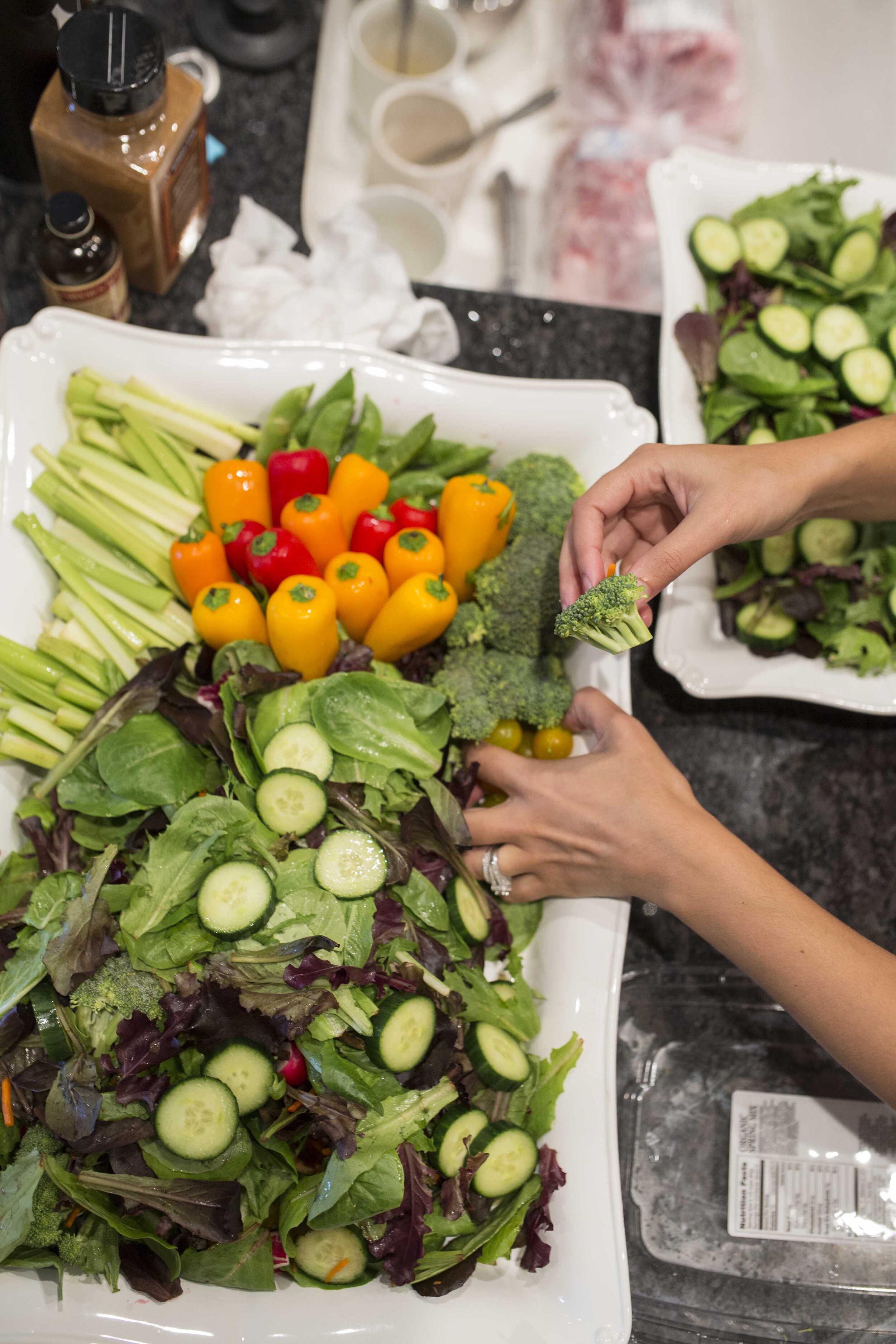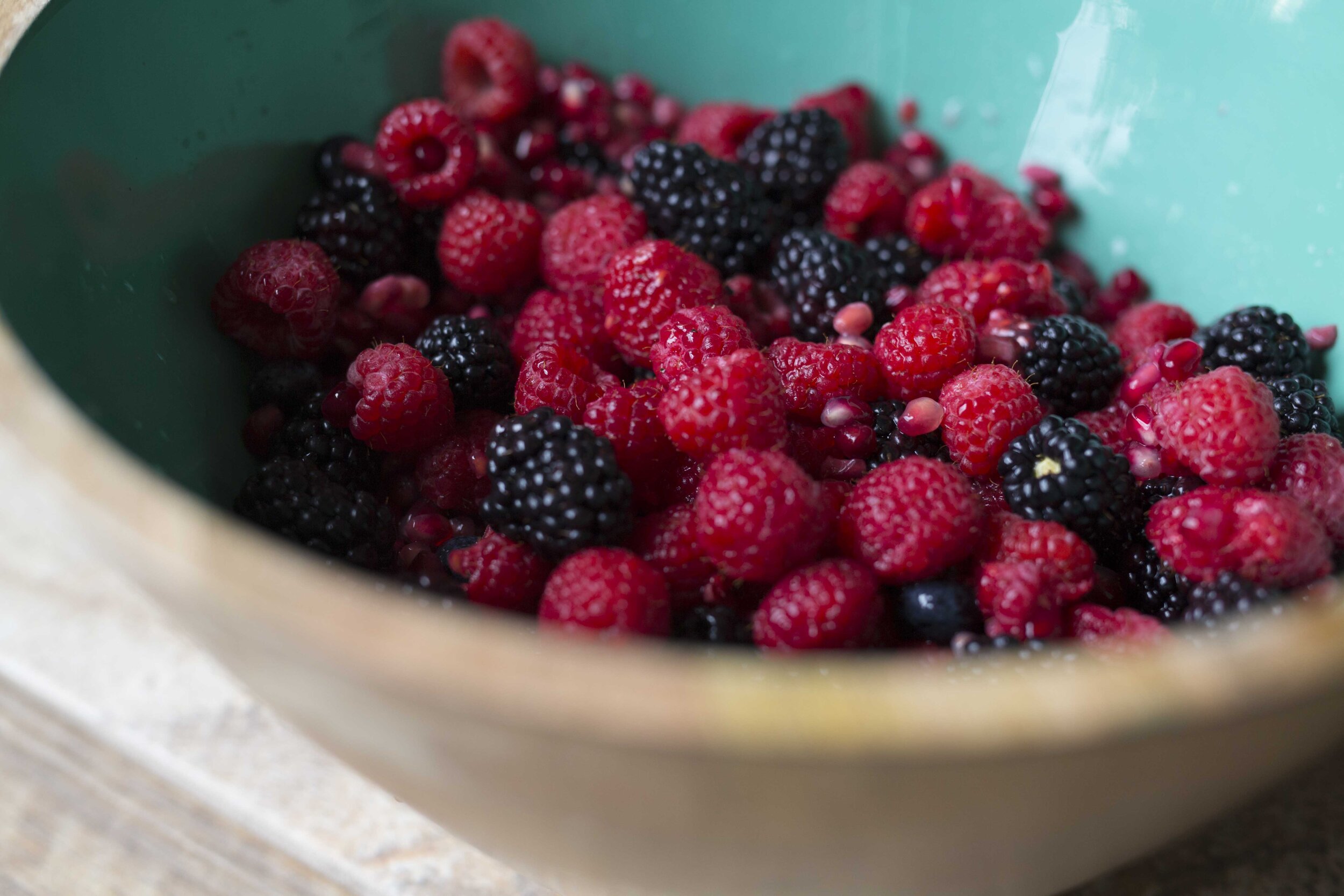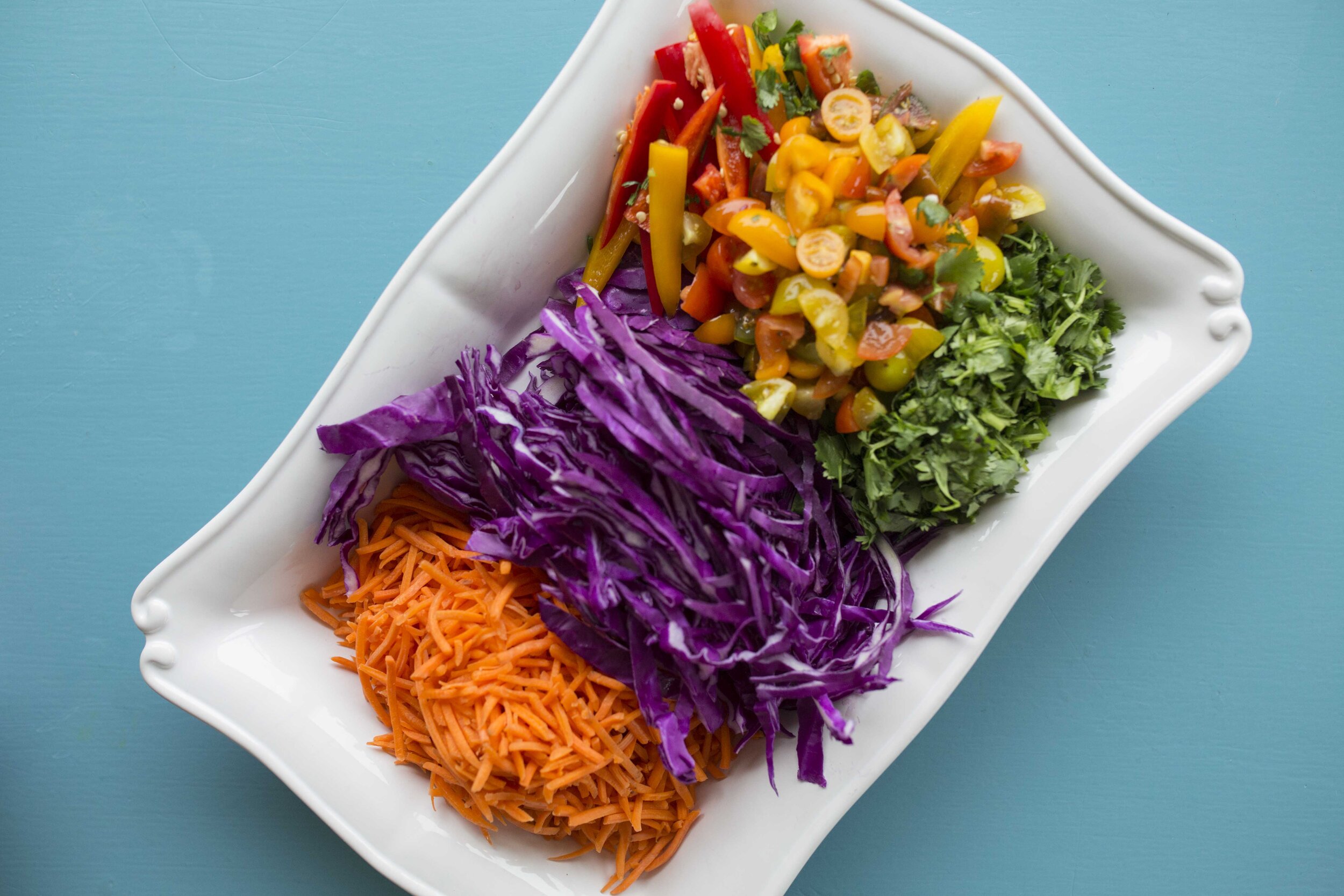Eat your Sun Screen? Foods for Sun Protection
Some extra sun protection can be supported by the food you consume and even foods you apply on your body.
I live in Texas. And I love to be outside. We are outside all the time (comes with the Liferoot job description). On any given day you will most likely find us with sun protective clothing, hats, and seeking shade when possible. The 106 degree heat can literally fry you (and an egg) in Texas. With this sun so harsh here, I love finding ways to elongate our time in the sun, and help our bodies absorb the life giving nutrients faster (before the kids, Brad and I are sunburned).
We need the sun. You need the sun. Say it with me, we all need the sun. I have come across many clients over the years who are completely scared of the sun. They coat their whole body with sunscreen before they step foot outside, never allowing their skin to be sun-kissed in any way. I totally get this, because sun smarts are absolutely vital in the summer in Texas. Especially on delicate areas such as the face, chest and shoulders. But let me tell you now…dont be scared of the sun! It provides nutrients our bodies need. DO be scared of over exposure to the sun. When you know you are going to be out for prolonged periods wear clothing, non-toxic sun screen, hat, or stay in the shade. Research has found certain key nutrients from your diet can actually boost your skin’s natural sun protection and protect your skin from sun damage. Several studies suggest that long-term ingestion of sun-protective vitamins can make a difference in the body’s reactivity to harmful sun rays and lengthen the amount of time your body can be exposed to the sun without receiving damage. (2) And if you eat these foods on a regular basis, it shows a direct coorelation with sun reactivity. On the flipside, there are foods that can have the reverse effect, making you MORE suseptible to the sun’s harmful rays and sunburn. So here is the breakdown below.
What does the Sun and Vitamin D (The Amazing Fantastic Sun-Absorbed Vitamin) do for us?
Besides the life-giving necessities such as warmth, plant life, and viable atmosphere, the sun provides nutrients to our bodies in the form of Vitamin D (which has a whole host of benefits such as cancer protection & heart disease prevention), serotonin & melatonin production (key hormones for sleep and well-being), and nitric oxide (a key component in blood pressure regulation and heart health) (1). The sun has also been proven to improve your mood, outlook on life, and overall emotional state.
Vitamin C- This vitamin is super supportive of the immune system and many of its food contain antioxidants that can help compensate for sunscreen's shortcomings by neutralizing the free-radical damage that sun exposure causes. So again, eat your fruits and veggies, in whole food form (minimizing sugary or processed juices). Citrus (lemons, grapefruits, oranges, limes), strawberries, cherries, peppers, sweet potato.
Vitamin A- This vitamin is a powerhouse, protecting the immune system, and keeping vital organs healthy, such as your vision and reproduction. Vitamin A is naturally found in animal products like eggs, cheese, butter, grass-fed meats and fish. Foods like carrots, spinach, and broccoli, contain carotene, which the body turns into Vitamin A. This vitamin is highly dependant that you are digesting your fats properly, so if your poop floats regulary, you drink alcohol frequently, or take several pharmaceutical medications, you may want to add a digestive enzyme before eating, or see a nurtitional specialist who can help you optimize your fat burning potential.
Vitamin E- This vitamin protects the cells and cell membranes from free radical and environmental oxidative stress. Vitamin E is normally found in the skin, but exposure to sunlight has been shown to deplete this extremely important antioxidant and topical application of it boosts the availability of it. When your Vitamin E stores are up in your body through foods and topical application of Vitamin E, your body can absorb the energy from ultraviolet light and prevent free radical damage to skin. Foods like sprouted nuts, avocados, shrimp, squash, spinach, and sunflower seeds are excellent. Topical application of Vitamin E is also helpful.
Don’t sell yourself short and just concentrate on these foods in the summer sun months! Eating these foods in the winter can repair the summer damage and prep your body for next summer. And remember you are only what you digest! If you aren’t digesting your foods well, its all for not. Contact us if you need more help in this department.
Happy Sun Bathing & Vitamin D absorbing! xo
Photo Credit: Allison Worthen @birdunexplored
Resources:
2. https://www.cell.com/cell-reports/fulltext/S2211-1247(17)30988-9





